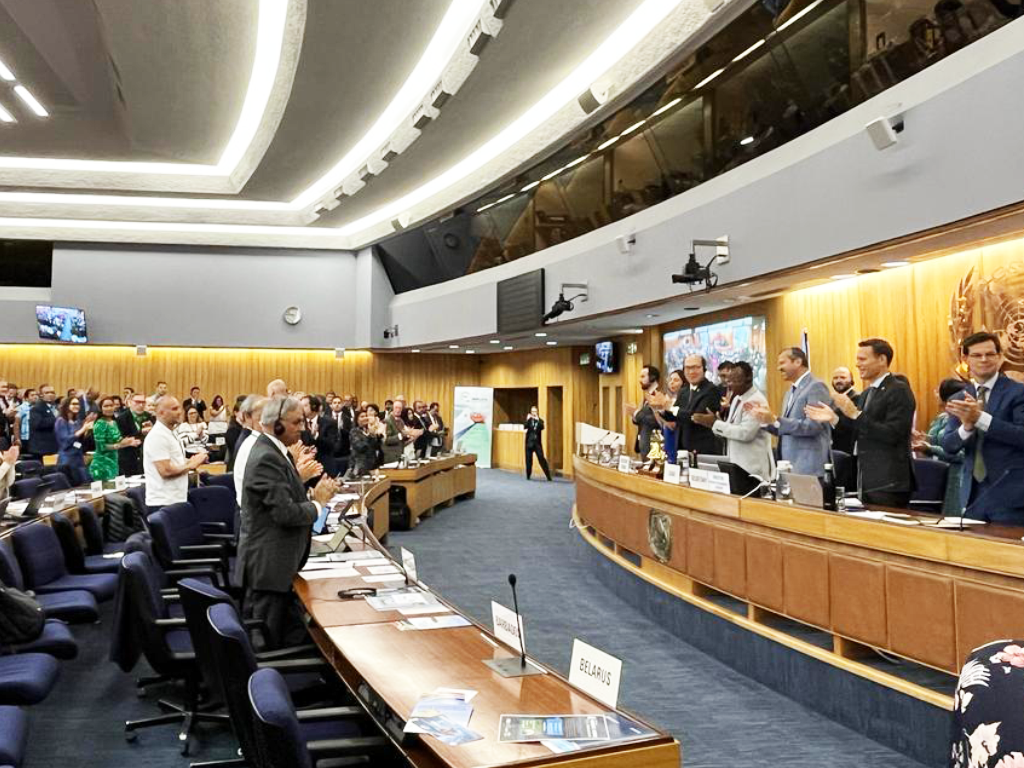The Royal Belgian Shipowners’ Association (RBSA) is positive about the net zero goal achieved today in the 80th plenary meeting of the Marine Environment Protection Committee (MEPC) of the International Maritime Organisation (IMO). The 175 Member States reached a historic agreement that “in or near” 2050 net zero emissions of greenhouse gases from shipping must be achieved. Net zero emissions refers to a 100% reduction across the entire value chain from well to wake.
Wilfried Lemmens, RBSA’s Managing Director, commented on the outcome: “More specific wording on the actual deadline would have been welcomed but we understand the need for some flexibility where needed to achieve the goal. Most importantly, this is the first industry-specific climate agreement. It is the foundation to further ensure a level-playing field in the sector.”
Celine Audenaerdt, RBSA’s Head of Environmental and Technical Affairs, emphasized the importance of intermediate targets for 2030 and 2040: “A 2050 target alone would not have been enough to achieve net zero emissions. Intermediate goals are needed to keep track and provide clarity to the industry in the shorter term as well.”
Therefore, intermediate ‘checkpoints’ have been agreed:
• at least 20% (striving for 30%) absolute reduction in 2030 as compared to 2008, and;
• at least 70% (striving for 80%) absolute reduction in 2040 as compared to 2008.
Underlying measures, such as a fuel standard, complemented with economic measures such as a fuel levy, are needed to reach these goals. These measures will be further developed and discussed in the next year and a half and will need to enter into force in early 2027 as per the agreement.
“These agreed ‘checkpoints’ are a compromise between concerns about the feasibility of ambitious goals in the short term and the urgent actions required to limit global warming to 1.5 degrees centigrade as is laid down in the Paris Agreement,” she continued.

